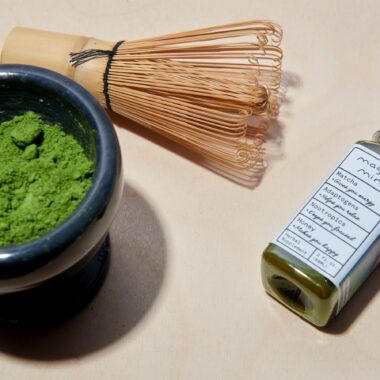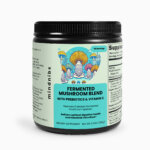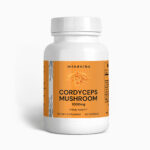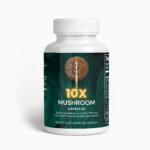
“How to Make Your Coffee Routine a Health Ritual with Organic Beans”
Coffee is a staple for millions of people around the world, providing a daily boost of energy and comfort. However, not all coffee is created equal. In fact, many store-bought coffees are loaded with artificial flavors, preservatives, and pesticides that can harm your health. If you’re looking to elevate your coffee routine and turn it into a healthy and rejuvenating ritual, consider switching to organic beans. Not only do they offer a rich, flavorful taste, but they are also grown without harmful chemicals and toxins. In this article, we’ll explore the benefits of organic coffee and provide practical tips on how to make the switch without sacrificing taste or convenience. Get ready to transform your daily coffee ritual into a health-giving experience.

1. The Health Benefits of Organic Coffee: Why You Should Make the Switch
Organic coffee is not only delicious but also comes with numerous health benefits that make it a great alternative to regular coffee. Here are some reasons why you should make the switch:
- Lower risk of diseases: Organic coffee is rich in antioxidants, which help to protect the body from damage caused by free radicals. The antioxidants in organic coffee may lower the risk of conditions such as type 2 diabetes, heart disease, and certain types of cancer.
- Less exposure to harmful chemicals: Traditional coffee farming often involves the use of pesticides and synthetic fertilizers, which can leave harmful residues on the coffee beans. Organic coffee, on the other hand, is grown without the use of these chemicals, reducing your exposure to potentially harmful substances.
- Better for the environment: Organic coffee farming is more sustainable and eco-friendly than traditional farming methods. Organic farming practices work to preserve the soil, reduce water waste, and minimize pollution, ensuring that the environment is protected for future generations.
In addition to these health benefits, organic coffee also tastes great. It has a fresh, clean, and natural taste that is impossible to replicate with traditional coffee. So, if you’re looking for a healthier, tastier, and more sustainable coffee, make the switch to organic coffee today!
Remember, not all coffee is created equal. Choose organic coffee for a healthier and more sustainable option that tastes great and supports the environment.

2. Choosing the Best Organic Beans: What to Look For in Your Coffee
When it comes to choosing the best organic beans for your coffee, there are a few things to keep in mind. Here are some factors to consider before making a purchase:
1. Certification: Look for beans that are certified organic by a third-party organization such as the USDA or Rainforest Alliance. This ensures that the beans were grown using sustainable methods that avoid the use of harmful pesticides and chemicals.
2. Roasting Date: Freshness is key when it comes to coffee, so make sure to check the roasting date on the bag. Beans that were roasted within the past two weeks will offer the best flavor and aroma.
3. Flavor Profile: Different regions and varieties of beans will offer different flavor profiles, from fruity and acidic to chocolaty and nutty. Experiment with different types to find the taste that suits your palate.
By choosing the best organic beans for your coffee, you’re not only supporting sustainable agriculture, but also treating yourself to a delicious cup of joe. Remember to look for certification, freshness, and flavor profile when making your next purchase.

3. How to Brew the Perfect Cup of Organic Coffee for Ultimate Enjoyment
Drinking coffee is more than just getting your caffeine fix for the day. It’s an experience, a ritual, and a way to indulge in a moment of pleasure. Organic coffee is the perfect solution for those who want to enjoy coffee while also being conscious of their impact on the environment. Follow these simple steps to brew your perfect cup of organic coffee:
- Choose high-quality, organic coffee beans. Look for certifications like USDA organic to ensure they are grown without chemical fertilizers and pesticides.
- Grind your coffee beans to the appropriate size. For drip coffee makers, a medium grind is recommended, while French press and pour-over brewing methods require a coarser grind.
- Measure the coffee grounds and water. As a general guideline, use one to two tablespoons of coffee grounds for every six ounces of water.
Once you’ve selected your beans and grinded them to the right size, it’s time to brew your coffee. Here are some brewing methods to consider:
- Drip coffee maker: This is the most common method of brewing coffee. Add water to the machine’s reservoir, place a filter in the basket, add your coffee grounds, and turn the machine on.
- French press: This method involves steeping coffee grounds in hot water before pressing them through a mesh filter. The result is a rich, full-bodied cup of coffee.
- Pour-over: This method involves manually pouring hot water over a filter containing coffee grounds. It takes a bit more time and effort, but the result is a clean, crisp cup of coffee.
In conclusion, brewing the perfect cup of organic coffee takes a bit of effort, but the taste and quality are worth it. By using high-quality, organic coffee beans and choosing the right brewing method, you can enjoy a cup of coffee that is not only delicious, but also better for the environment. So the next time you make your coffee, take a moment to appreciate the process and savor the result.

4. Incorporating Organic Coffee into Your Daily Routine: Tips and Tricks
If you’re like most people, you can’t start your day without a cup (or two) of coffee. Why not make that cup of joe not only delicious but also healthier? By incorporating organic coffee into your daily routine, you’ll enjoy the benefits of a beverage that’s not only better for the environment but also better for you.
One tip for incorporating organic coffee into your daily routine is to try different brewing methods. If you’re used to using a drip coffee maker, why not switch things up and try a French press or pour-over? These methods allow you to control the temperature of the water and the amount of time the coffee is brewed, resulting in a richer and more flavorful cup. Plus, using a reusable filter instead of disposable paper filters is another way to reduce your environmental impact.
Another trick is to pair your coffee with a healthy breakfast. Instead of grabbing a sugary pastry or processed breakfast sandwich, opt for a nutritious meal that will keep you fueled throughout the day. Try pairing your organic coffee with a whole-grain bagel topped with avocado or a smoothie bowl loaded with fruit and nuts. This way, you’ll enjoy the benefits of a caffeine boost without the crash that comes with processed foods.
One more tip is to take advantage of the versatility of organic coffee. You can use coffee grounds as a natural exfoliant, or add them to your garden to help fertilize your plants. Coffee can even be used as a natural dye for fabrics! By incorporating organic coffee into your daily routine, you’re not only benefiting your health but also discovering new ways to live a more sustainable and eco-friendly lifestyle.
5. The Power of Mindful Coffee Drinking: Transforming Your Coffee Habit into a Health Ritual
Coffee is more than just a caffeine fix – it can be a powerful tool for enhancing mental focus and overall wellbeing. By incorporating mindfulness into your coffee-drinking routine, you can transform this daily habit into a health ritual that fosters self-awareness and nourishment.
Here are some simple tips for practicing mindful coffee drinking:
- Begin by setting an intention for your coffee ritual – perhaps to savor each sip mindfully, or to take a moment of calm before starting your day.
- Take note of the aroma, color, and flavor of your coffee as you drink it, engaging all your senses in the experience.
- Avoid multitasking while you drink your coffee – put aside distractions and focus solely on the present moment.
By practicing mindful coffee-drinking, you can improve your emotional wellbeing and reduce stress levels. Rather than rushing through your coffee break, you can take the time to cultivate a new level of appreciation for each cup.
So, whether you brew your coffee at home or enjoy it at your favorite café, consider taking your coffee-drinking routine to the next level with mindfulness. Give yourself the gift of a revitalizing and nourishing experience – with each mindful sip.

6. Boosting the Nutritional Value of Your Coffee: Unique Additions for a Healthier Brew
Coffee is one of the world’s most popular beverages, with millions of cups consumed each day. Many people enjoy coffee for its caffeine content, but did you know that it can also be a great source of important nutrients? With a few simple additions, you can easily boost the nutritional value of your morning brew.
One of the easiest ways to add nutrients to your coffee is by using plant-based milk instead of dairy. Almond, coconut, and soy milk are all great options that are rich in vitamins and minerals. Additionally, plant-based milk is often lower in calories and fat than traditional dairy milk.
Another way to enhance the nutritional value of your coffee is by adding a scoop of protein powder. This is an easy way to boost your intake of protein, which is important for building and repairing muscle tissue. There are many types of protein powder available, including whey, soy, and plant-based options like pea and hemp protein.
Finally, you can add a variety of superfoods to your coffee for an extra dose of vitamins and minerals. Some popular options include spinach, kale, chia seeds, and turmeric. These ingredients not only add nutritional value but also add interesting flavor and texture to your brew. With just a few additions, you can turn your morning cup of coffee into a nutrient-rich beverage that helps you start the day off right.
7. Savoring the Flavor of Organic Beans: Experiencing the Rich Taste of Ethically-Sourced Coffee
Organic beans are becoming increasingly popular among coffee drinkers. These beans are grown without the use of synthetic pesticides, herbicides, or fertilizers. They are also ethically-sourced, meaning the farmers who produce them are paid fairly for their hard work. By choosing to drink coffee made from organic beans, you can savor the rich taste while also supporting sustainable and ethical agricultural practices.
One of the benefits of drinking coffee made from organic beans is the rich flavor. Because the beans are grown without the use of synthetic chemicals, they are able to develop a more complex taste profile. In addition, organic coffee is often roasted in small batches, which allows for better control over the roasting process and can result in a more flavorful and aromatic cup of coffee.
Another advantage of drinking ethically-sourced coffee is the impact it has on the environment. Organic farming practices are designed to conserve water, reduce soil erosion, and promote biodiversity. By supporting organic farming, you are helping to preserve our planet and ensure that future generations will be able to enjoy the same delicious coffee that we do today.
In conclusion, choosing to drink coffee made from organic beans is a delicious and ethical choice. Not only can you savor the complex flavor of the coffee, but you can also support sustainable and fair farming practices. So sit back, relax, and enjoy a cup of coffee knowing that you are making a positive difference in the world.
By incorporating organic coffee beans into your coffee routine, you’re taking a major step towards incorporating healthier habits and practices into your daily life. This is one of the least time-consuming and most enjoyable rituals you can commit to. Try treating yourself to organic coffee beans today and get ready to experience the natural, rich aromas and flavors. Enjoy!

























